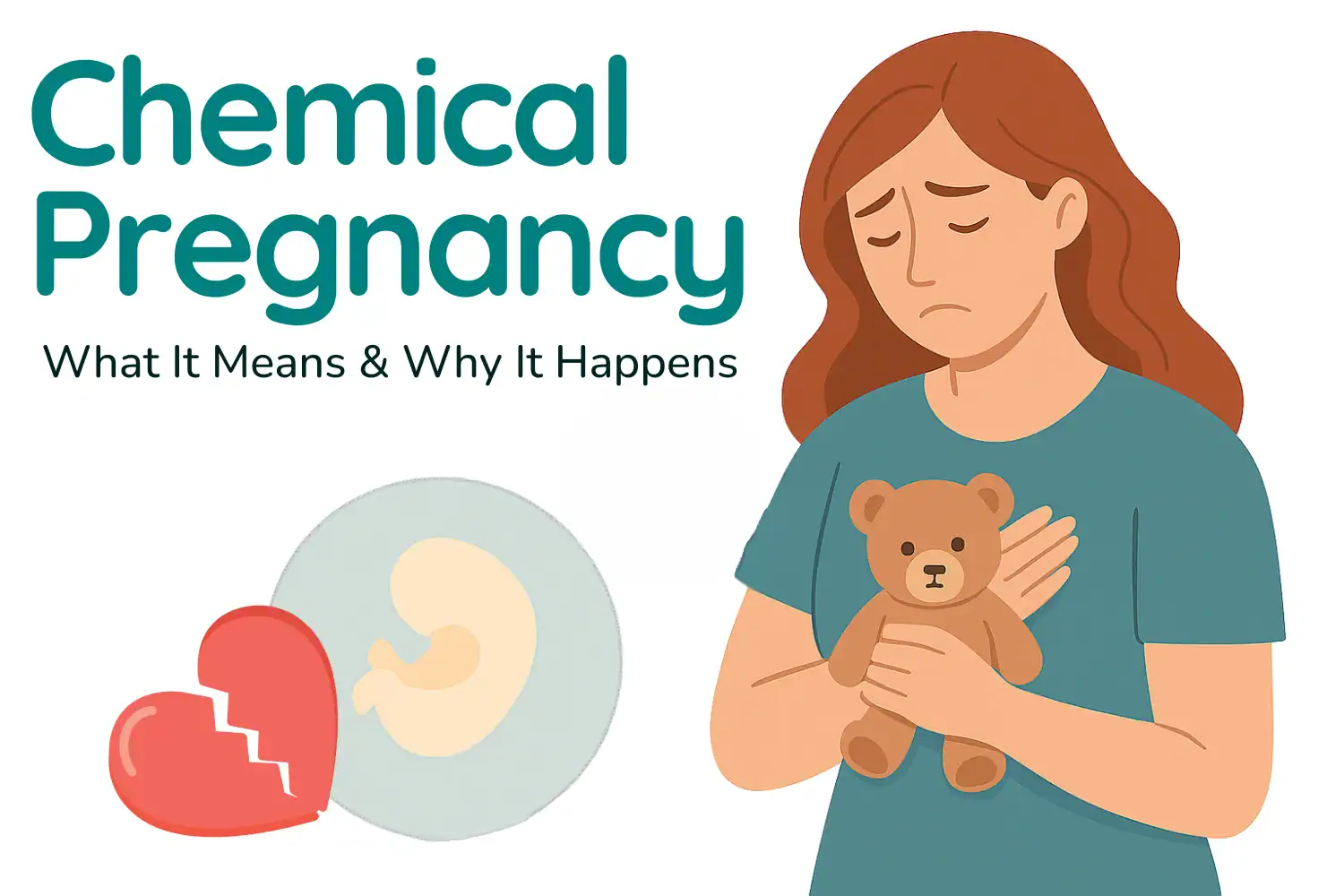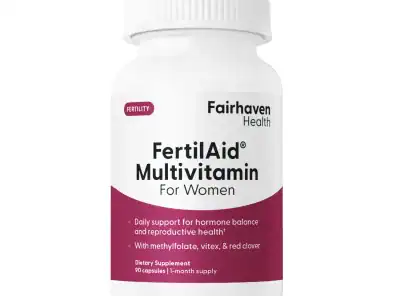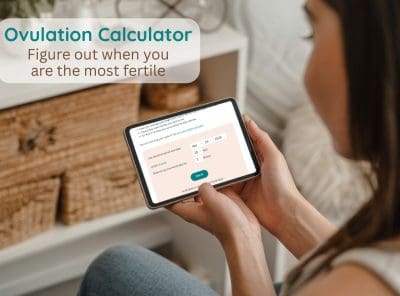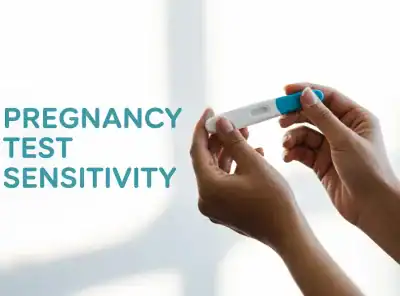Your cart is currently empty!
Chemical Pregnancy: What It Means and Why It Happens
Getting a faint positive pregnancy test can feel like the start of something beautiful. So when your period shows up days later, it’s natural to feel confused, heartbroken, or even question what just happened.
This very early loss has a name: chemical pregnancy. And while it’s incredibly common, most people don’t hear about it until they’ve lived through it. Understanding what a chemical pregnancy is, and what it isn’t, can help soften the confusion and support your healing.
- What Is a Chemical Pregnancy?
- What Causes a Chemical Pregnancy?
- Chemical Pregnancy Symptoms
- Chemical Pregnancy vs. Clinical Miscarriage
- Can a Chemical Pregnancy Be Detected in a Blood Test?
- How Long Does a Chemical Pregnancy Last?
- Can a Chemical Pregnancy Be Prevented?
- Trying Again After a Chemical Pregnancy
- Emotional Healing Matters Too
- If You're Navigating This Right Now
- Chemical Pregnancy FAQ
What Is a Chemical Pregnancy?
A chemical pregnancy is an early miscarriage that happens before the sixth week of pregnancy — often before an ultrasound could detect anything. You might get a positive test result shortly before your period is due, only to start bleeding a few days later.
This happens because a fertilized egg begins to implant and produces hCG (the hormone detected by pregnancy tests). But for reasons often out of your control, the embryo stops developing early on, and hormone levels drop quickly.
You can read more about the clinical details in this Cleveland Clinic guide on chemical pregnancy.
What Causes a Chemical Pregnancy?
It’s not your fault. Most chemical pregnancies happen because the embryo wasn’t viable from the start.
The most common reasons include:
- Chromosomal abnormalities – These are random errors in the embryo’s genetic material. They’re responsible for up to half of early pregnancy losses. Learn more from GBMC’s miscarriage genetics resource.
- Hormonal imbalances – Low progesterone, thyroid disorders, or conditions like PCOS may make it harder for an embryo to implant and thrive.
- Uterine issues – Fibroids, scar tissue, or inflammation may affect implantation.
- Age and environmental factors – Being over 35, exposure to toxins, or even severe stress may increase risk, though not always directly.
Chemical Pregnancy Symptoms
Wondering if you’ve experienced one? Here are some signs that might point to a chemical pregnancy:
- A positive test that turns negative within a few days
- Bleeding that’s slightly heavier or clot-filled compared to your normal period
- Mild cramping
- Breast tenderness or fatigue that fades quickly
Because this all happens so early, many people don’t realize they were pregnant unless they were testing. But if you’ve been tracking, hoping, and picturing what’s next, a chemical pregnancy can feel like a real and painful loss, not just of a possibility, but of a dream that had already begun to grow in your heart.
The Miscarriage Association shares more about what this experience can look and feel like.
Chemical Pregnancy vs. Clinical Miscarriage
It’s easy to confuse a chemical pregnancy with a more recognizable miscarriage. Here’s how they’re different:
Feature | Chemical Pregnancy | Clinical Miscarriage |
|---|---|---|
Timing | Before 6 weeks | After 6 weeks |
Ultrasound Findings | None (too early) | May show sac or heartbeat |
Symptoms | Light bleeding, test changes | Cramping, heavier bleeding |
Confirmation | Faint or fading positive test | Often requires ultrasound and doctor follow-up |
You can learn more about these distinctions in this overview from MedicineNet.
Can a Chemical Pregnancy Be Detected in a Blood Test?
Yes. Doctors may use serial hCG blood tests to confirm what’s happening. In a viable pregnancy, hCG should double every 48–72 hours. With a chemical pregnancy, hCG rises briefly, then drops.
An ultrasound is rarely helpful at this early stage, since there’s nothing visible yet. If you’re unsure, or bleeding begins after a positive test, it’s okay to call your provider and ask for clarity.
How Long Does a Chemical Pregnancy Last?
Physically, it often resolves within a few days. You may have bleeding similar to a period, sometimes a little heavier. Most people recover without needing medical treatment.
But if the bleeding is very heavy (soaking a pad an hour), or you experience severe pain or signs of infection, call your provider.
Can a Chemical Pregnancy Be Prevented?
In most cases, no, and that’s what makes it so hard. These early losses are usually random and not caused by anything you did or didn’t do.
That said, supporting your health before and during conception may improve your chances of a healthy pregnancy down the line. Here’s what might help:
- Take a prenatal vitamin with folic acid – WebMD stresses the importance of this
- Get any chronic health conditions (like thyroid or PCOS) under control
- Limit smoking, alcohol, and toxin exposure
- Reduce stress where possible, even small changes can help your hormones stay in balance
Trying Again After a Chemical Pregnancy
There’s no medical reason to wait unless your doctor advises it. Ovulation usually resumes within a few weeks. Many people conceive again soon after a chemical pregnancy, sometimes even in the very next cycle.
Still, your emotional readiness matters just as much as the physical timeline. If you’re wondering whether you need testing after multiple early losses, your provider may suggest blood work, hormone checks, or imaging.
You might also find Inito’s guide to trying again comforting and practical.
Emotional Healing Matters Too
This kind of loss can feel invisible, but your feelings are real.
It’s okay to grieve, even if no one else knew you were pregnant.
You might feel sadness, frustration, confusion, even guilt and all of that is valid. You’re not overreacting, and you don’t have to “just move on.” Talk to someone you trust. Join a support group. Light a candle or write a note to the pregnancy that was just beginning.
If You’re Navigating This Right Now
A chemical pregnancy is a form of early miscarriage and a reminder of how delicate the start of life can be. It’s more common than most people realize, and it’s never something to be ashamed of.
You didn’t do anything wrong.
Most people who experience a chemical pregnancy go on to have healthy, full-term pregnancies. But even if your path looks different, you deserve support, answers, and gentle care as you find your way forward.
Chemical Pregnancy FAQ
What is a chemical pregnancy?
A chemical pregnancy is a very early miscarriage that happens before the sixth week of pregnancy, often before an ultrasound could detect anything. It usually involves a positive pregnancy test followed by a period a few days later.
What causes a chemical pregnancy?
Most chemical pregnancies are caused by chromosomal abnormalities in the embryo. Other factors may include hormonal imbalances, uterine issues, thyroid conditions, or lifestyle influences like smoking or stress.
How do I know if I had a chemical pregnancy?
You might notice a faint positive test result that fades quickly, followed by heavier-than-usual bleeding and mild cramping. Only testing or monitoring hCG levels can confirm it.
Can a chemical pregnancy be detected in a blood test?
Yes. A chemical pregnancy can be confirmed with serial hCG blood tests. In a healthy pregnancy, hCG levels rise steadily, but in a chemical pregnancy, they drop soon after rising.
Is it possible to prevent a chemical pregnancy?
In most cases, no. Chemical pregnancies are usually due to random genetic errors. However, supporting your health through prenatal vitamins, hormone balance, and managing conditions like PCOS may help in future pregnancies.
When can I try to get pregnant again after a chemical pregnancy?
Medically, you can try again as soon as you feel ready. Ovulation often returns within two weeks, and many people conceive again quickly. If you’ve had repeated early losses, talk to your provider.






